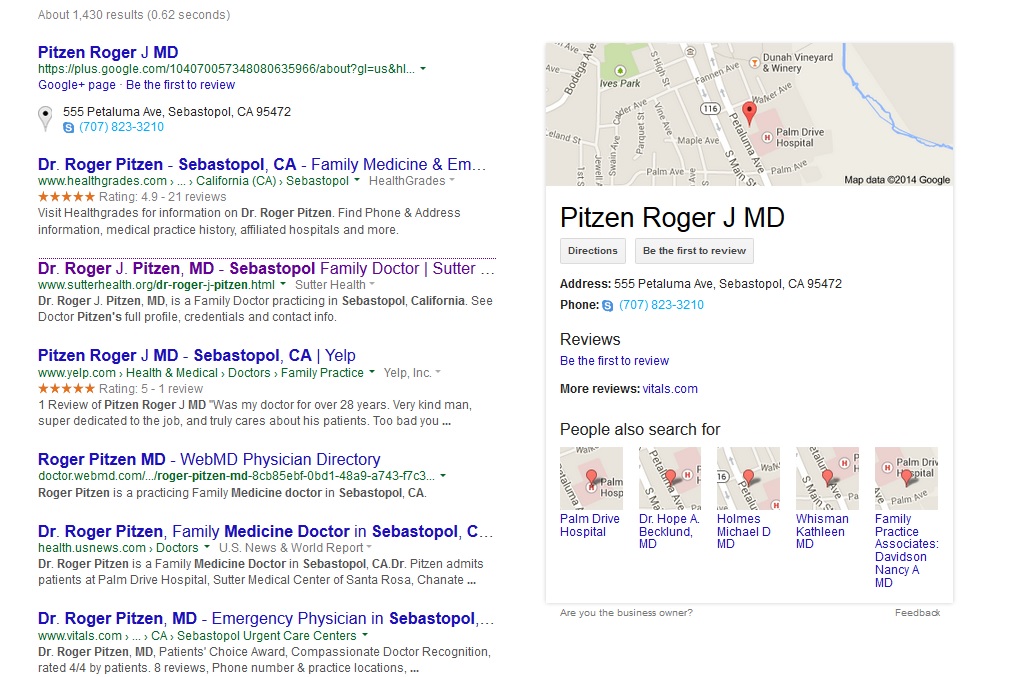An article at the Healthworks Collective a couple of years ago expressed a position we’ve encountered among doctors even now:
A lot of doctors feel it’s unethical for doctors to have a website because they feel it is a form of advertising. They feel that a website is a cheap gimmick, and respectable doctors do not need to stoop to such low levels in order to solicit patients – after all, there is a difference between doctors, who are professionals, and stores, which are out to sell their goods ! They feel it is below their dignity to put up a website ; and will actually look down upon other doctors who have an online presence.
The author of that article, HELP director Aniruddha Malpani, countered that failing to have a website is actually the unethical route. “One of the most effective tools to educate patients,” Malpani points out, “is a website.” A Pew study found that 80% of U.S. internet users — the majority of American adults — use the internet to find information about their health. This includes people who are planning to visit their doctors. Doctors who fail to provide reliable information for their patients, Malpani contends, are failing in their responsibility for patient education, leaving their patients at the mercy of the enormous glut of health information online.
This discussion present two completely different, and competing, views of websites:
- A website is like a TV ad — a bit déclassé and possibly a sign of failure for a physician.
- A website is a source of information for patients.
Naturally, we’re biased in favor of the web. We work here. But doctors who take the position that a website is somehow a bit shady are ignoring one essential fact: they’re already on the web.
Physician, Google thyself! (Luke 4:23, updated.) Physicians have a web presence. I’ve chosen a physician at random for this post, a guy without a website, and you can see that he has more than 1,400 citations on Google. He has not taken control of his web presence at all. That doesn’t mean that he doesn’t have a web presence.
It simply means that his patients can’t get quick answers to common health questions from him in the middle of the night, can’t download the forms they need to fill out before their first visit with him, and have to rely on compilations of data that may or may not be correct.
Dr. Pitzen happens to have great reviews and isn’t accepting new patients, but a younger doctor who was establishing his or her practice might care that 44% of healthcare consumers now research doctors online when they’re looking for healthcare. A doctor who received negative reviews, perhaps based on factors outside of his or her control, might value the opportunity to present a positive online image through a website.
Is there really an ethical question here?
Read more about medical websites:
- Does your medical practice need a website?
- Local search for healthcare professionals
- WordPress plugins for medical professionals
- Giving advice at your blog
- Making technical stuff readable
[button link=”http://hadeninteracti.wpengine.com/download-free-ebook/” newwindow=”yes”] Download Free Ebook[/button]


Leave a Reply